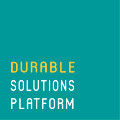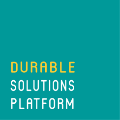With the Syrian conflict now in its twelfth year, Jordanians and Syrian refugees living in poverty continue to face a fragile economy with limited prospects for self-reliance and sustainable livelihoods. To date, most livelihoods programming in Jordan has focused on “push strategies” such as vocational training, short-term job matching, and cash for work programming. However, with Jordan’s stagnant private sector growth, high public sector employment rates, and reliance on the informal economy, these types of interventions that focus on building the capacity of individual level actors to engage in markets have not proven sustainable.
New to the Jordanian context, the graduation approach (GA or graduation) has gained traction as a promising methodology to life households in Jordan out of extreme poverty and into self-reliance. Graduation programs like the RYSE project are exploring ways to overcome these challenges, including through engagement with the private sector to develop complementary “pull strategies” that help to expand the quality and diversity of economic opportunities available. Notable opportunities within the tech-enabled and information and communications technology (ICT) sector and food processing and agribusiness have been identified as high-growth opportunities that would also be appropriate for women, youth, and Syrian refugees, who often face additional barriers to market engagement.
Though still at the early stages, the GA community of practice in Jordan has already produced numerous lessons learned about who and how to target for graduation programming. Despite the challenging situation of implementing the GA in Jordan, opportunities remain promising and offer an innovative integrated program approach that builds resilience and self-reliance which can support displaced persons to meet their needs in a sustainable way, and therefore contribute to supporting pathways towards durable solutions for refugees to allow displaced people to be better prepared to pursue a durable solution when it becomes available to them.




